30 Military Quotes from Military Leaders and Statesmen on Wars and Bravery
Quotes by military leaders and statesmen shed light on the nature of war, bravery, and the human condition during times of conflict. Throughout history, these phrases have influenced tactics, motivated warriors, and captured the spirit of warring nations. The words of these leaders, who range from Sun Tzu of antiquity to General George S. Patton, Jr. of today, ring true with ageless insight.
These sayings frequently encapsulate what it means to be brave in the midst of difficulty, emphasizing the bravery needed to face the chaos of combat. They emphasize the value of preparation, flexibility, and leadership while discussing the strategic acumen required for success. Furthermore, military quotations highlight the human cost of conflict by serving as a constant reminder of the sacrifices made by those in uniform and the necessity of pursuing peace wherever feasible.
These quotations have cultural significance beyond their tactical bearing on military tactics; they have shaped how we as a society see bravery and conflict. The words of military commanders and statesmen are still remembered through the pages of history, whether they inspire combat or counsel during peacetime. They stand as a tribute to the unwavering spirit of bravery and perseverance in the face of hardship.
Here are the 30 Military Quotes from Military Leaders and Statesmen on Wars and Bravery:
1. “I know not what course others may take, but as for me, give me liberty or give me death!” Patrick Henry
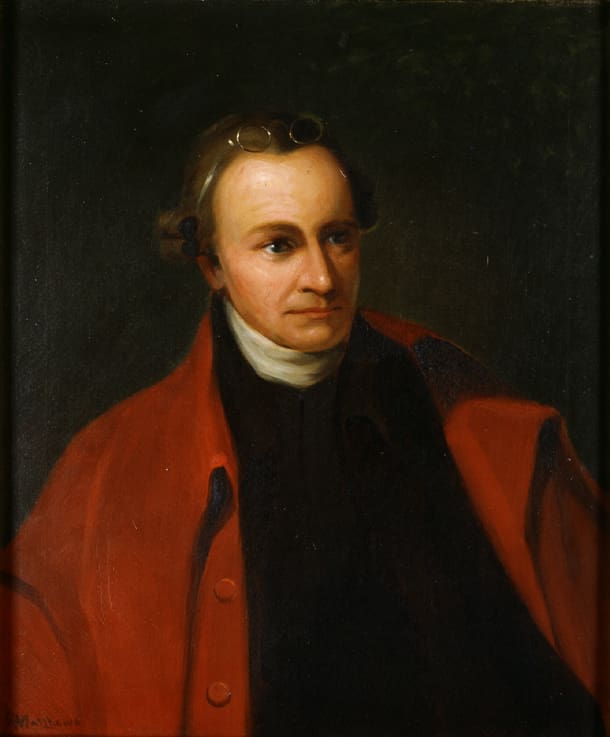
George Bagby Matthews (1857 – 1943), after Thomas Sully (1783-1872), Public domain, via Wikimedia Commons
“I know not what course others may take, but as for me, give me liberty or give me death!” is a famous quote by Patrick Henry that perfectly captures the ardent spirit of American independence. When he said these things in a speech in 1775, the colonies were inspired to rebel against British domination.
Henry’s steadfast devotion to liberty emphasized the fervent conviction that people have an innate right to self-determination. Generations have been inspired to defend democracy and human rights by his passionate plea, which has reverberated throughout history as a rallying call for those prepared to give their all for the sake of liberty.
2. “In war, resolution; in defeat, defiance; in victory, magnanimity.” Winston Churchill
The words of Winston Churchill, “In war, resolution; in defeat, defiance; in victory, magnanimity,” perfectly capture the spirit of conflict-affected leadership. During the turbulent years of World War II, Churchill expressed the unwavering resolve of the British people to resist Nazi invasion.
The speaker underscored the significance of maintaining unwavering resolve in the face of hardship, persevering through defeat, and displaying grace by showing compassion when triumphant. Churchill’s eloquence and unflinching commitment inspired his country and the rest of the globe, serving as a constant reminder of the timeless virtues necessary to face the challenges of war with honor and dignity.
3. “The only thing necessary for the triumph of evil is for good men to do nothing.” Edmund Burke
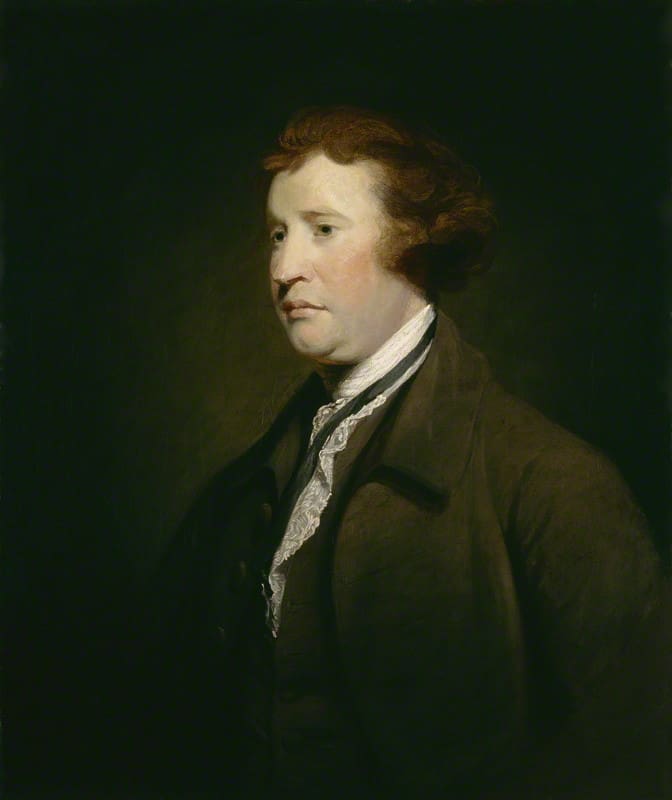
Studio of Joshua Reynolds, Public domain, via Wikimedia Commons
The age-old proverb attributed to Edmund Burke, “The only thing necessary for the triumph of evil is for good men to do nothing,” is a heartbreaking reminder of the moral obligation to oppose injustice. Burke’s remarks emphasize the peril of indifference to wrongdoing and are frequently quoted in debates on civic duty and social responsibility.
He exhorts people to actively participate in the defence of virtue and morality by emphasizing how passivity and silence contribute to the triumph of evil. Burke’s insightful observation still rings true today as a call to moral bravery and alertness in the never-ending fight against oppression and tyranny.
4. “Never interrupt your enemy when he is making a mistake.” Napoleon Bonaparte
The maxim “Never interrupt your enemy when he is making a mistake,” coined by Napoleon Bonaparte, sums up the spirit of strategy and patience in combat. Refusing to intervene too soon allows one to take advantage of the mistakes made by the opposition and use their vulnerabilities to obtain the upper hand.
By letting opponents stall on their terms before using the opportunity to attack, this perceptive observation highlights the need for strategic forbearance and careful observation. Napoleon’s dictum is a timeless reminder that sometimes waiting for the right opportunity to act is the best course of action in the art of war.
5. “Bravery is being the only one who knows you’re afraid.” David Hackworth
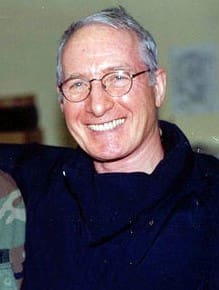
Dale Cruse. (Flickr profile.), CC BY-SA 3.0, via Wikimedia Commons
“Bravery is being the only one who knows you’re afraid,” said so poignantly by David Hackworth, encapsulating the essence of bravery in the face of fear. True bravery frequently resides in the capacity to face fear head-on rather than in the lack of it.
Hackworth reminds us that courage means tackling our worries head-on with a strong sense of purpose and resolve, even when others fail to notice the tremor that exists within us. This realization strikes a deep chord, emphasizing the inner conflict that goes along with heroic deeds. It honors the silent bravery of people who move forth despite their fears and show what real bravery looks like.
6. “War is delightful to those who have had no experience of it.” Desiderius Erasmus
The wise words of Desiderius Erasmus, “War is delightful to those who have had no experience of it,” serve as a sobering reminder of the idealized ideas that are frequently attached to distant combat. People who have not experienced its brutal consequences could view war as exciting or glorious.
Erasmus’s remarks, however, shatter these misconceptions by emphasizing the terrible reality that war causes enormous misery, devastation, and loss. With this brief declaration, Erasmus calls our attention to the sharp discrepancy that exists between our perception and the terrible reality of battle, and he urges us to choose peace and understanding above the attraction of bloodshed.
7. “The bravest are surely those who have the clearest vision of what is before them, glory and danger alike, and yet notwithstanding, go out to meet it.” Thucydides
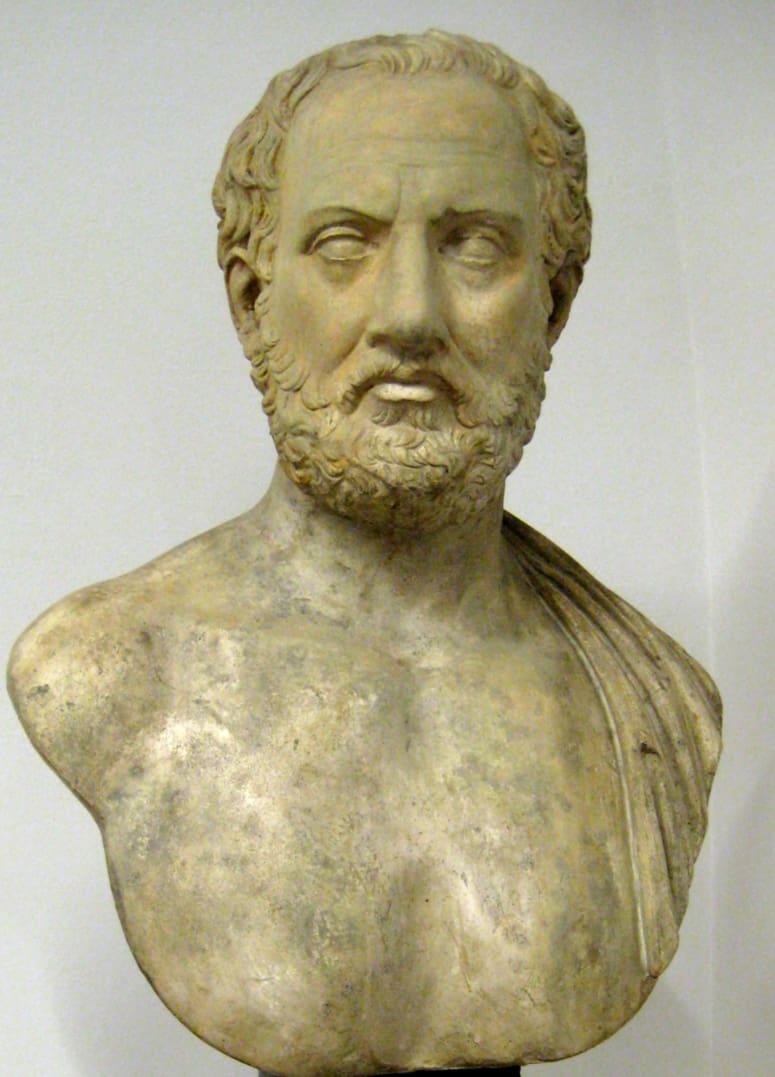
user:shakko, CC BY-SA 3.0, via Wikimedia Commons
A classic quote from Thucydides states, “The bravest are surely those who have the clearest vision of what is before them, glory and danger alike, and yet notwithstanding, go out to meet it.” perfectly captures the spirit of courage. Real bravery isn’t mindless recklessness; rather, it’s an awareness of the dangers that lie ahead and an unyielding will to face them.
Thucydides underscores the bravery needed to confront misfortune with wide eyes and unwavering determination by stressing the value of vision and resolve. The aforementioned insightful assessment bears witness to the unwavering determination of individuals who fearlessly march forward, even in the face of immense obstacles.
8. “There is no instance of a nation benefiting from prolonged warfare.” Sun Tzu
The age-old proverb of Sun Tzu, “There is no instance of a nation benefiting from prolonged warfare,” emphasizes the pointlessness and terrible cost of protracted hostilities. Nations have seen the depletion of resources, morale, and social cohesion following protracted conflicts throughout history.
The wisdom of Sun Tzu casts doubt on the idea of winning via attrition and emphasizes the need for quick decision-making and calculated diplomacy. His advice can help leaders protect their countries’ prosperity and well-being by emphasizing peace and looking for alternatives to protracted conflicts. The warning from Sun Tzu about the high cost of war and the necessity of finding peaceful solutions is still a sobering reminder.
9. “The soldier above all others prays for peace, for it is the soldier who must suffer and bear the deepest wounds and scars of war.” Douglas MacArthur
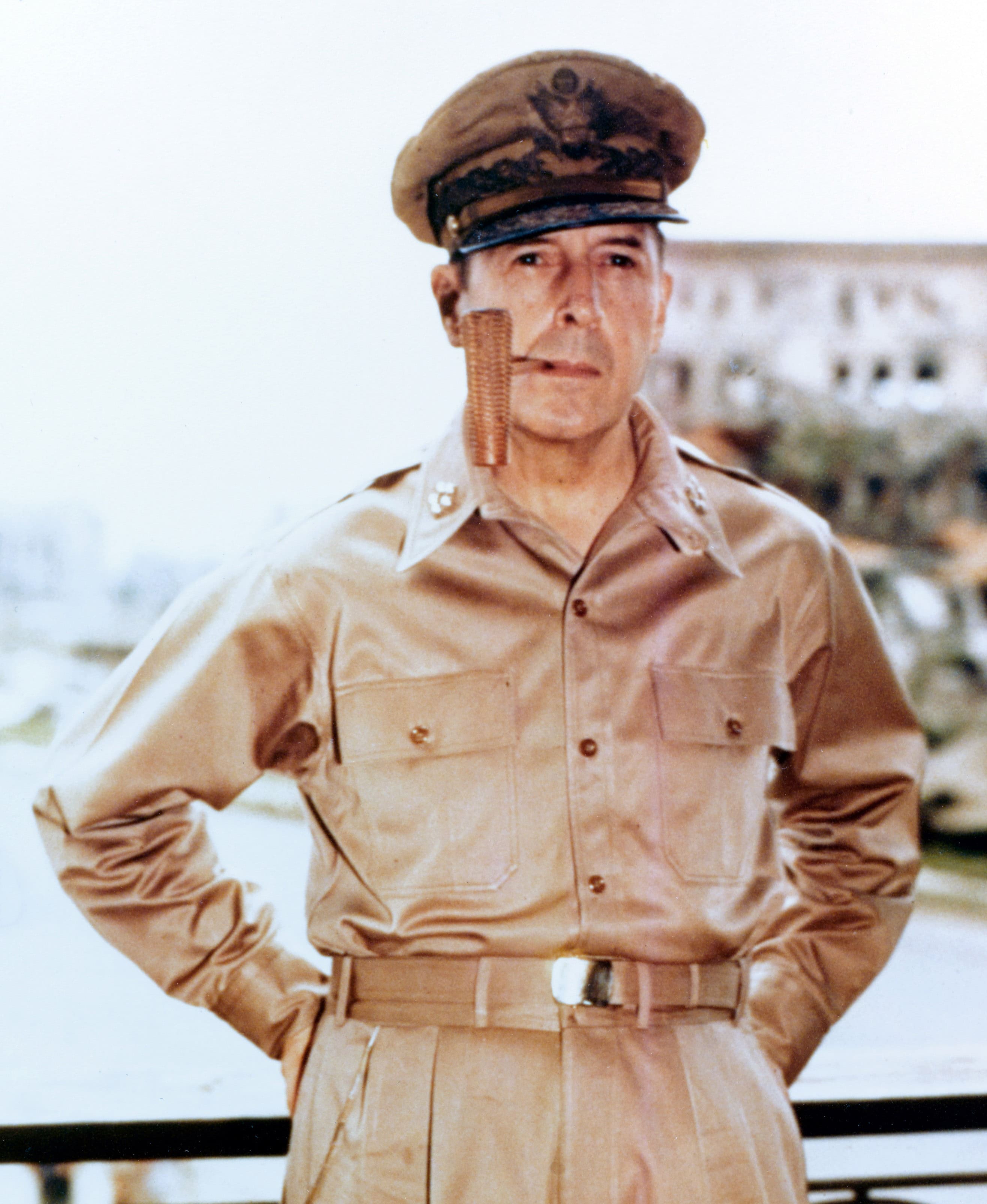
Photographer not credited., Public domain, via Wikimedia Commons
“The soldier above all others prays for peace, for it is the soldier who must suffer and bear the deepest wounds and scars of war,” penned by Douglas MacArthur, captures the terrible toll that armed warfare takes on those who serve. Soldiers bear the psychological and physical toll of combat as warriors and see the destruction firsthand.
MacArthur’s remarks highlight the soldier’s intense wish for peace, which stems from a close awareness of the horrific reality of war. Amid the turmoil of battle, this attitude emphasizes the basic humanity shared by fighters, highlighting the universal desire for peace and the end of suffering.
10. “In war, there is no substitute for victory.” Douglas MacArthur
The quote by Douglas MacArthur, “In war, there is no substitute for victory,” captures the spirit of unshakable resolve needed to win a battle. Experienced in military leadership, MacArthur knew that to guarantee long-term peace and stability, decisive actions had to be taken.
His remarks highlight the seriousness of combat and the need for unshakable dedication and a persistent pursuit of victory. With these few words, MacArthur captures the spirit of military strategy and emphasizes the need for decisive action to defend the interests of the country and the lives of those serving in uniform. It serves as an enduring reminder of the unwavering pursuit of success in the face of difficulty.
11. “Older men declare war. But it is the youth that must fight and die.” Herbert Hoover
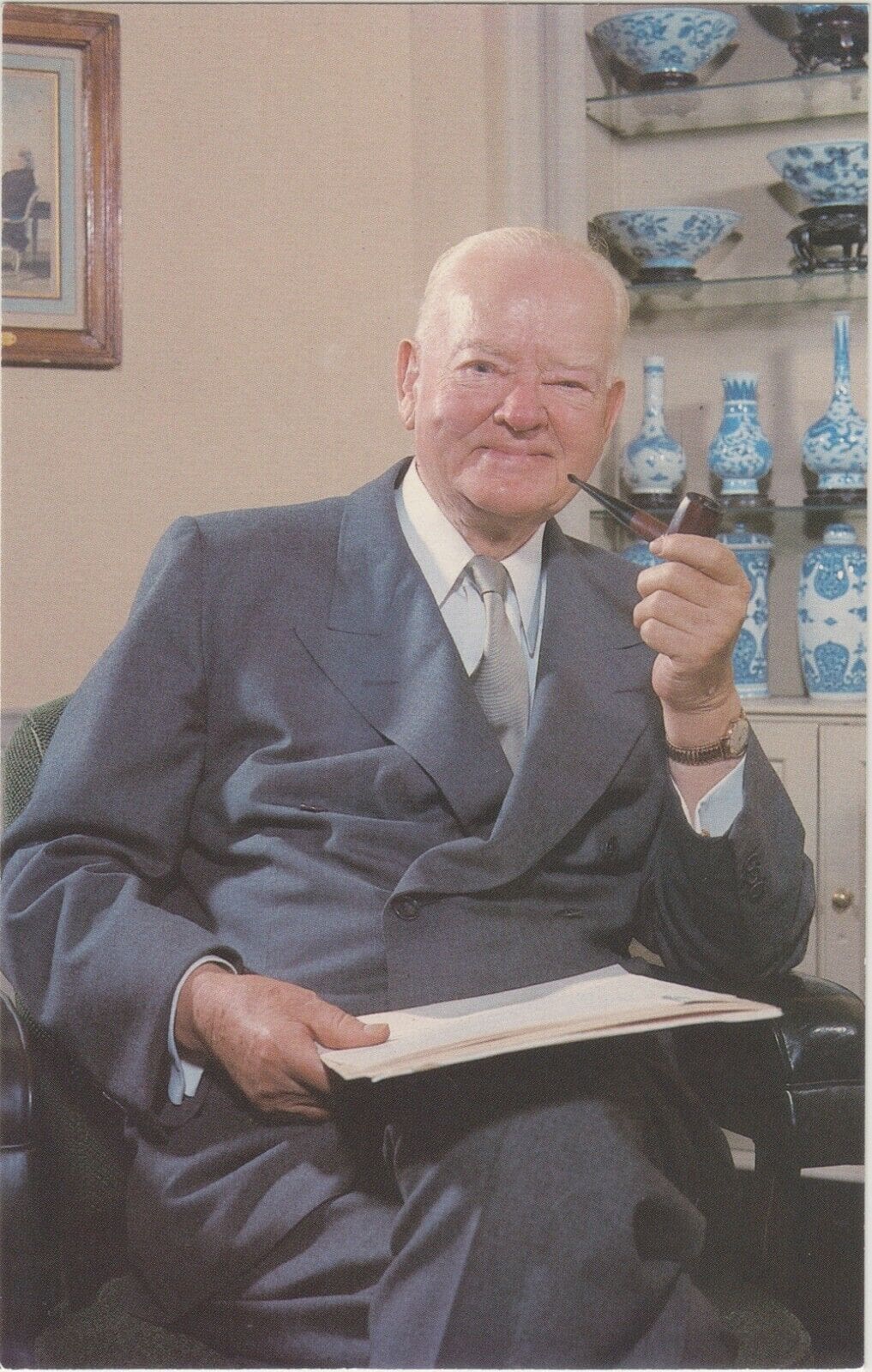
Adam Smith, Public domain, via Wikimedia Commons
“Older men declare war,” according to Herbert Hoover’s sobering observation. “But the young people are the ones who have to fight and lose their lives,” sums up the terrible truth of war. On the battlefield, youth suffer the most as decision-makers in the corridors of power.
The enormous weight placed on young people’s shoulders, who give their lives for reasons they might not fully understand, is highlighted by Hoover’s remarks. Inspiring leaders to pursue peaceful solutions and protect future generations from the horrors of armed conflict, this sad observation serves as a sobering reminder of the human cost of war.
12. “The art of war is simple enough. Find out where your enemy is. Get at him as soon as you can. Strike him as hard as you can, and keep moving on.” Ulysses S. Grant
A clear and concise approach by Ulysses S. Grant, “The art of war is simple enough. Find out where your enemy is. Get at him as soon as you can. Strike him as hard as you can, and keep moving on.” Effective military tactics are distilled into one phrase:
Grant’s no-nonsense strategy highlights the significance of quick thinking, forceful strikes, and unrelenting devotion. He sums up the core of maneuver warfare in these few sentences, advising commanders to seize openings and keep momentum going. For military leaders who must navigate the difficulties of conflict with clarity and commitment, Grant’s ageless wisdom remains relevant.
13. “Courage is fear holding on a minute longer.” George S. Patton
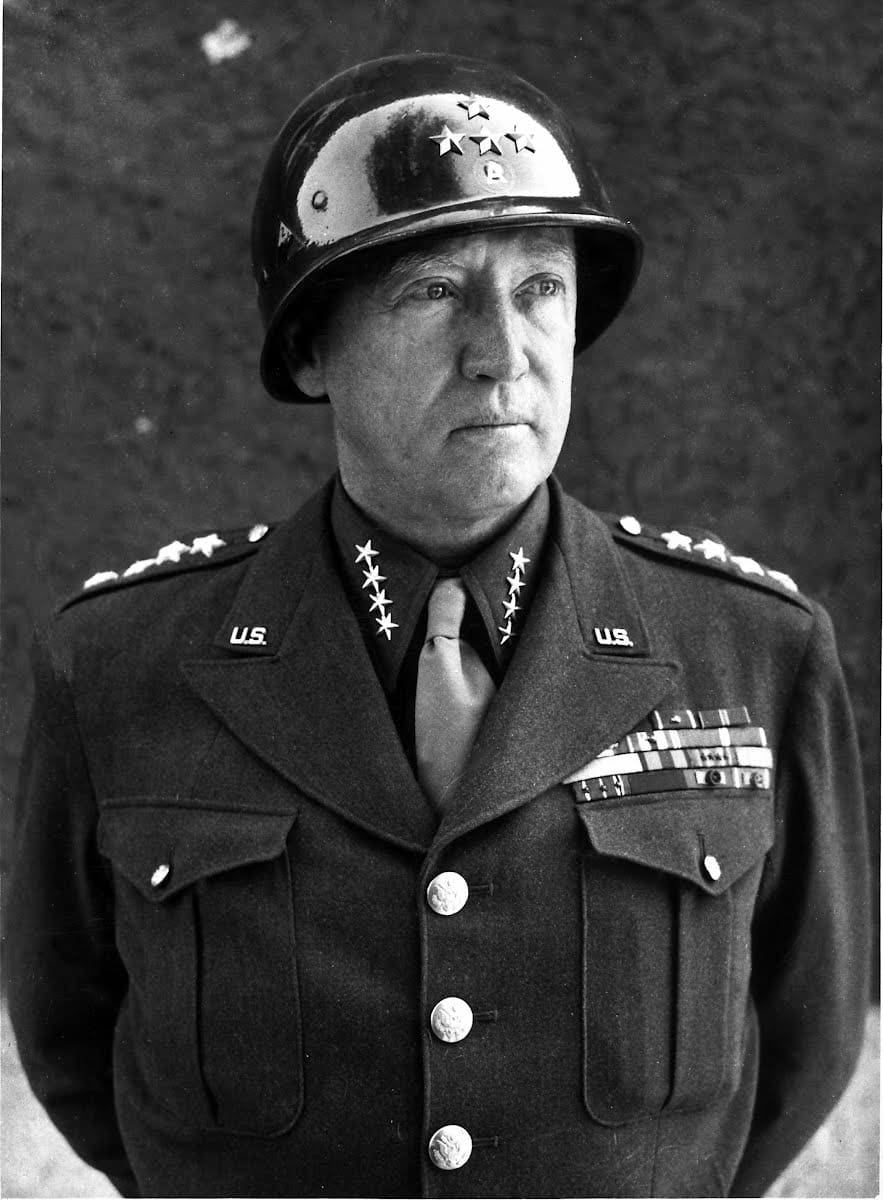
Keystone Paris, Public domain, via Wikimedia Commons
The wise words of George S. Patton, “Courage is fear holding on a minute longer,” perfectly capture what it means to be brave in the face of difficulty. Fear is a natural comrade in the furnace of war. But genuine bravery shows up when people push past their concerns and move forth in the face of danger and uncertainty.
Patton’s statements highlight the resilience needed to endure in the face of terror and acknowledge the internal battle that goes along with deeds of valor. People who embrace their fear and keep moving forward exemplify the unwavering spirit that characterizes true courage, encouraging others to find strength within themselves even in the most trying situations.
14. “To be prepared for war is one of the most effective means of preserving peace.” George Washington
The age-old proverb attributed to George Washington, “Being ready for war is one of the most effective means of preserving peace,” emphasizes how crucial military preparedness is to upholding stability. Washington understood the critical role deterrence plays in averting conflict because he was a founding father and military commander.
A strong defense and preparedness posture demonstrates a nation’s determination to defend its interests and fend off aggression. Washington’s wisdom underscores the opposed nature of war readiness and peacemaking, stressing the strategic necessity of power to ensure peace and protect the welfare of states and their populations.
15. “The supreme art of war is to subdue the enemy without fighting.” Sun Tzu
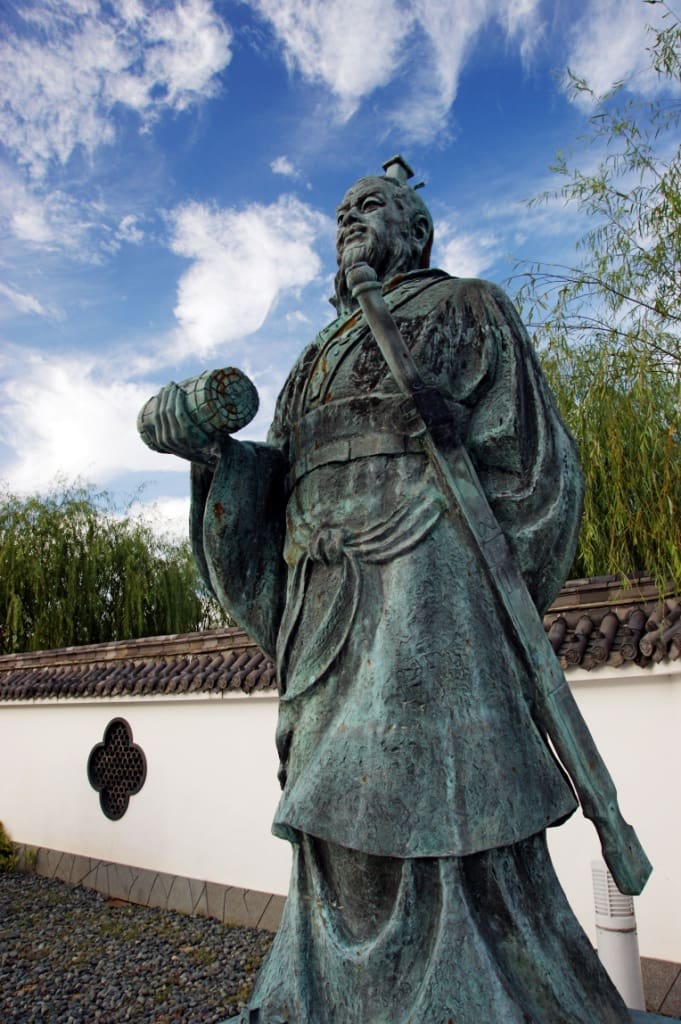
663highland, CC BY-SA 3.0, via Wikimedia Commons
The classic statement by Sun Tzu, “The supreme art of war is to subdue the enemy without fighting,” captures the essence of the greatest strategic achievement. True mastery is not about using force but about outwitting and outmaneuvering the opposition through information gathering, psychological warfare, and diplomacy.
Minimal violence can be achieved by building partnerships and weakening the enemy’s resolve to resist. Sun Tzu’s profound insight challenges conventional concepts of warfare and highlights the strategic superiority of achieving objectives without participating in direct conflict. It emphasizes the value of cunning and foresight. It is evidence of the ability of intelligence to overcome hardship.
16. “A soldier will fight long and hard for a bit of colored ribbon.” Napoleon Bonaparte
The wise words of Napoleon Bonaparte, “A soldier will fight long and hard for a bit of colored ribbon,” reveal much about the inner drives that drive warriors. Beyond monetary incentives, symbols of honor and recognition motivate warriors.
Napoleon understood the deep value of recognition, demonstrating how even something as modest as a ribbon can spur bravery and unshakable devotion. Given that troops frequently suffer great hardships to feel proud and recognized, this sentiment emphasizes the significance of morale and camaraderie in combat. Napoleon’s insight is still a powerful reminder of the human side of battle, where intangible gains have unfathomable significance.
17. “It is fatal to enter any war without the will to win it.” Douglas MacArthur

Photographer not credited., Public domain, via Wikimedia Commons
The cautionary statement made by Douglas MacArthur, “It is fatal to enter any war without the will to win it,” emphasizes how serious military commitment is. When conflict is handled haphazardly, lives and resources are put at risk without producing clear results. In the face of difficulty, MacArthur’s statements highlight the need for resolve and determination.
Nations run the risk of protracted hardship and defeat if they lack a resolute commitment to winning. This stark warning forces leaders to carefully consider the costs of conflict and to give their utmost to accomplish their goals. MacArthur’s perspective serves as a constant reminder of the risks associated with participating in military conflict.
18. “The object of war is not to die for your country but to make the other bastard die for his.” George S. Patton
A succinct statement by George S. Patton, “The object of war is not to die for your country but to make the other bastard die for his,” sums well the brutal realism of combat. Patton’s remarks slashed through idealized ideas of selfless sacrifice, emphasizing instead the harsh reality of battle: destroying the opposition by any means necessary.
This sentiment captures the unwavering resolve of military leaders to win the war, protecting their troops while dealing the enemy with the greatest amount of damage. The cruel calculus of combat, where survival and success depend on unrelenting aggressiveness and strategic domination, is starkly brought home by Patton’s candid judgment.
19. “The nation that will insist upon drawing a broad line of demarcation between the fighting man and the thinking man is liable to find its fighting done by fools and its thinking by cowards.” William Francis Butler
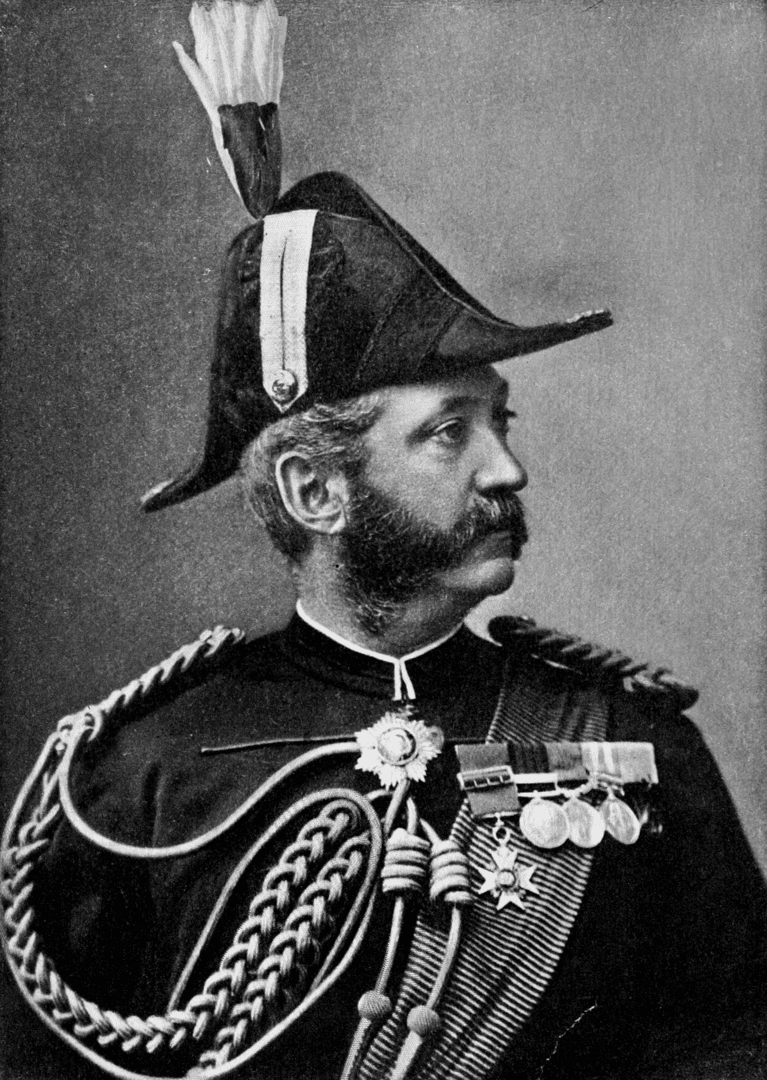
William Butler: An Autobiography. New York 1911., Public domain, via Wikimedia Commons
“The nation that will insist upon drawing a broad line of demarcation between the fighting man and the thinking man is liable to find its fighting done by fools and its thinking by cowards,” writes William Francis Butler, a perceptive warning about the dangers of ignoring the intellect in matters of warfare. A country faces dangers from both cautious reluctance and reckless aggression when it downplays the significance of strategic thought and confines it to the domain of military leadership. To conduct military action that is both courageous in combat and wise in judgment, Butler highlights the importance of combining cerebral ability with physical power.
20. “I am not afraid of an army of lions led by a sheep; I am afraid of an army of sheep led by a lion.” Alexander the Great
The famous quote from Alexander the Great states, “I am not afraid of an army of lions led by a sheep, I am afraid of an army of sheep led by a lion.” This statement emphasizes how crucial leadership is in military operations.
The effectiveness of soldiers is dependent on the caliber of their leadership, regardless of individual soldier prowess. Even the most humble soldiers can accomplish amazing things under the guidance of a strong and capable leader, but the most powerful army can become useless under incompetent leadership. Alexander’s remarks are a timeless reminder of how important leadership is in determining how conflicts turn out.
21. “The soldier is the Army. No army is better than its soldiers.” George S. Patton
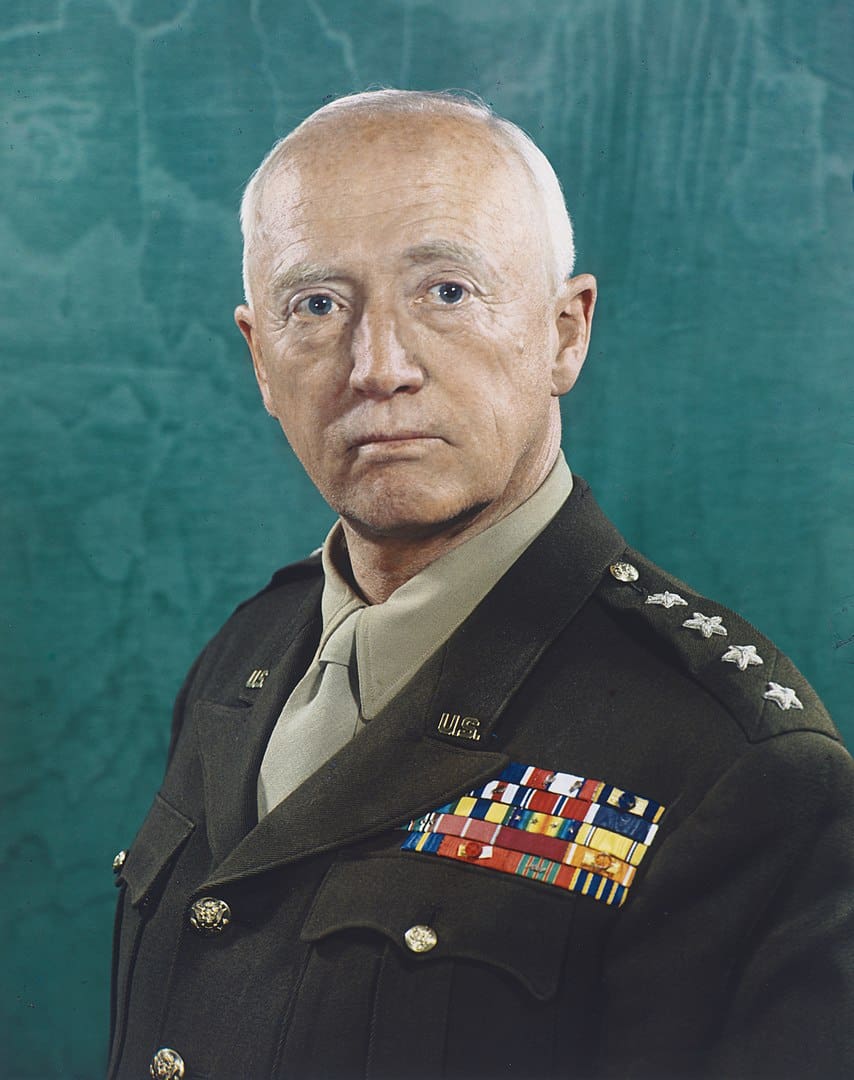
Robert F. Cranston, CC0, via Wikimedia Commons
George S. Patton’s wise words, “The soldier is the Army.” Underlines the basic significance of the individual soldier in military prowess: “No army is better than its soldiers.” The bravery, talent, and devotion of each soldier ultimately define the success of an army, regardless of technological advances or strategic genius.
The priceless contribution that every soldier makes to the military’s overall might is highlighted by Patton’s remarks. Patton emphasizes the value of training and investing in troops’ welfare by highlighting the individual’s crucial position within the bigger organization and the essence of military excellence.
22. “There is no avoiding war; it can only be postponed to the advantage of others.” Niccolò Machiavelli
The famous quote from Niccolò Machiavelli, “There is no avoiding war; it can only be postponed to the advantage of others,” serves as a sobering reminder of how inevitable conflict is in human affairs. As a sharp observer of political dynamics, Machiavelli knew that attempts to avoid or perpetually postpone battle frequently end up helping opponents who are more equipped or eager to take advantage of opportunities.
The significance of strategic preparation and foresight in international relations is emphasized by his remarks. Recognizing that conflict is inevitable and making preparations accordingly can help countries better protect their interests and preserve stability in an unpredictable world.
23. “Amid the chaos, there is also opportunity.” Sun Tzu

663highland, CC BY-SA 3.0, via Wikimedia Commons
The classic proverb from Sun Tzu, “Amid the chaos, there is also an opportunity,” captures the strategic thinking needed to succeed in conflict and other endeavors. There is room for creativity, flexibility, and expansion even in turbulent and uncertain times. Sun Tzu saw that opportunities for those wise enough to spot and take advantage of them can arise from crises, which can act as catalysts for change.
This realization applies to many facets of life where difficulties are present and goes beyond the battlefield. Sun Tzu’s dictum encourages perseverance, imagination, and hope, serving as a reminder that even in the most difficult circumstances, there are chances for growth and change if one has the clarity to recognize them.
24. “I am a soldier, I fight where I am told, and I win where I fight.” George S. Patton
The brief statement made by George S. Patton, “I am a soldier, I fight where I am told, and I win where I fight,” perfectly captures the steadfast will and determination of a great warrior. The soldier’s determination to fight wherever called upon is highlighted by Patton’s statements, which demonstrate a dedication to duty and greatness. Soldiers such as Patton embrace their duties with confidence in their talents, knowing that their courage, skill, and steadfast drive will lead them to victory on the battlefield.
25. “The true soldier fights not because he hates what is in front of him, but because he loves what is behind him.” G.K. Chesterton
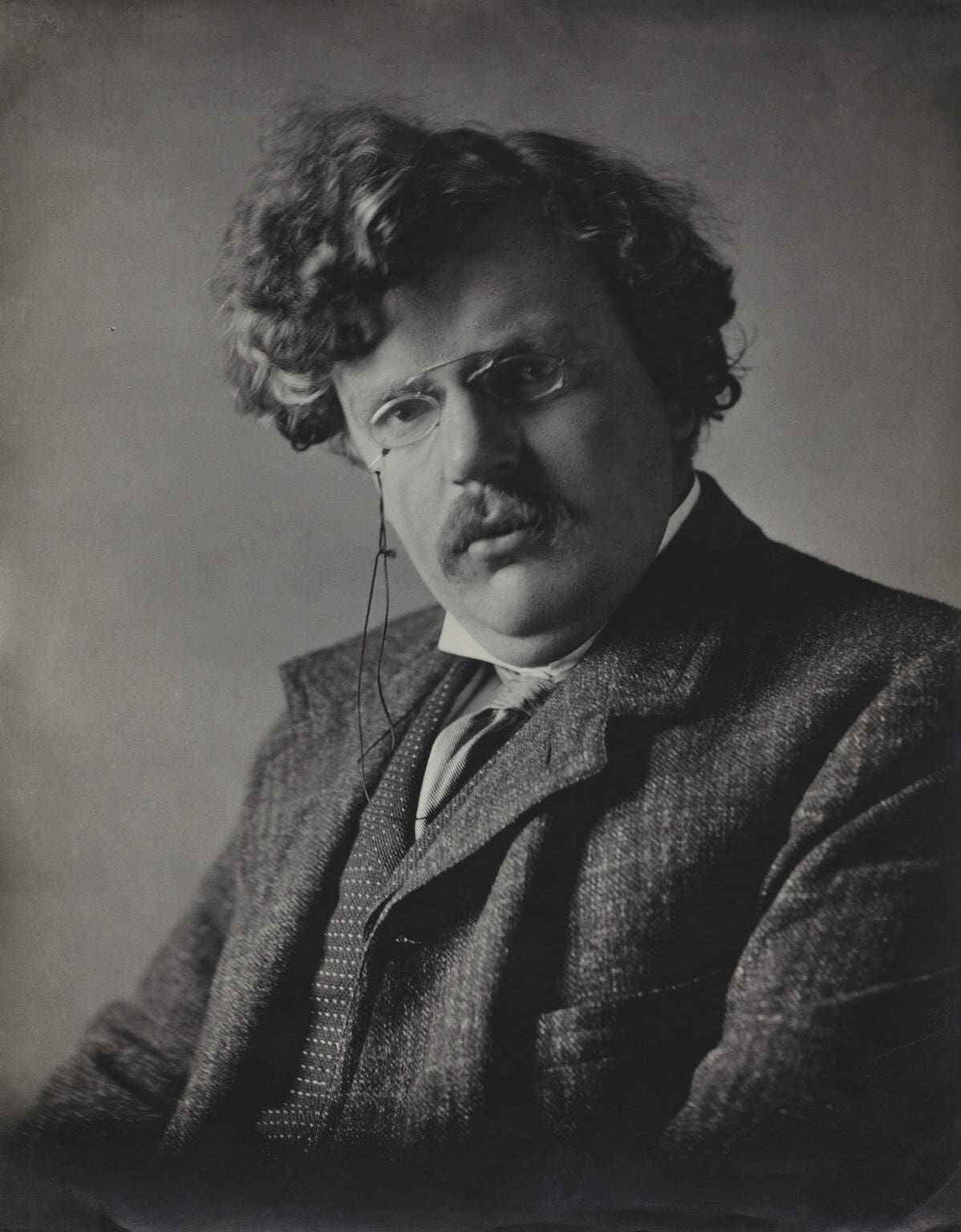
Ernest Herbert Mills, Public domain, via Wikimedia Commons
The fundamental reasons that propel warriors into combat are shown by G.K. Chesterton’s insightful quote, “The true soldier fights not because he hates what is in front of him, but because he loves what is behind him.” It illustrates a soldier’s commitment to the liberties, ideals, and people they defend.
It goes beyond simple loyalty or animosity towards the adversary; it is a profound dedication to protecting what is most important. Chesterton’s words underline the heroic attitude of those who stand ready to defend their homeland and protect the priceless gifts of life, emphasizing the selflessness and sacrifice inherent in military duty.
26. “War is the unfolding of miscalculations.” Barbara Tuchman
“War is the unfolding of miscalculations,” as Barbara Tuchman so eloquently put it, sums up the awful reality of armed warfare. Misunderstandings, poor decisions, and ineffective diplomacy frequently lead to wars. Tuchman’s observation highlights how difficult and unpredictable war is, and how decisions made in a hurry or with incorrect information can have long-lasting effects.
Tuchman urges us to approach conflict with humility and prudence by emphasizing the human tendency for error and the significant costs associated with a miscalculation. Her remarks serve as a stark warning about the necessity of pursuing diplomacy and peace to avoid becoming victims of the tragic cycle of conflict.
27. “The only way to win a war is to be even more monstrous than your enemy.” George R.R. Martin

Henry Söderlund, CC BY 4.0, via Wikimedia Commons
“The only way to win a war is to be even more monstrous than your enemy,” a sobering statement by George R.R. Martin, addresses the harsh realities of conflict. Victory in the cruel calculus of war frequently necessitates horrific deeds and merciless strategies.
Martin challenges preconceived ideas of heroism and justice in his remarks, which elicit thoughts on the moral conundrums that arise in combat. They force us to face the evil side of human nature and the devastating results of unbridled aggression in the quest for power, serving as a sobering reminder of the moral complexity and sacrifices required by the quest for victory.
28. “Victory belongs to the most persevering.” Napoleon Bonaparte
“Victory belongs to the most persevering,” a timeless maxim by Napoleon Bonaparte, emphasizes how crucial persistence and determination are to success. Innumerable conflicts have been won throughout history by perseverance in the face of difficulty rather than just greater might or cunning.
The words of Napoleon instill a spirit of endurance, motivating people to face challenges and disappointments head-on with unshakable determination. They act as a reminder that people who persevere in the face of difficulties and never give up often reap the benefits of victory. Like on the battlefield, persistence is still essential to winning in the arena of life.
29. “War is too important to be left to politicians.” Georges Clemenceau
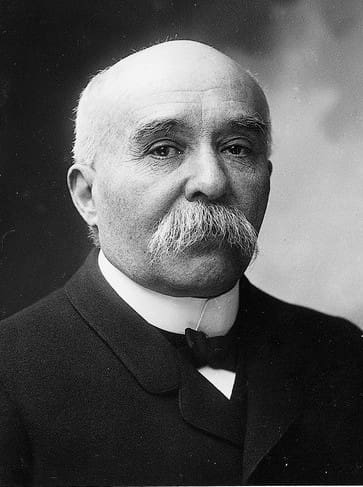
Paul Nadar, Public domain, via Wikimedia Commons
The quote made by Georges Clemenceau, “War is too important to be left to politicians,” faces the grim reality of armed combat. Clemenceau understood the serious consequences of war and the necessity of making wise decisions that went beyond personal gain as an experienced politician who had experienced the turmoil of World War I.
His remarks highlight the necessity of deliberate, knowledgeable leadership in both peace and wartime affairs. Clemenceau encourages a more thorough examination of the moral and tactical implications of war by questioning the idea of leaving such important decisions entirely up to politicians. His observation serves as a wake-up call to accountable government and a reminder of the enormous risks in wartime affairs.
30. “The greatest glory in living lies not in never falling, but in rising every time we fall.” Nelson Mandela
“The greatest glory in living lies not in never falling, but in rising every time we fall,” is a deep quote by Nelson Mandela that perfectly captures the spirit of resiliency. True greatness is not defined by success alone, but rather by the capacity to rise above hardship and endure in the face of difficulties.
Mandela’s comments encourage people to have a mindset of tenacity and fortitude, to rise stronger from every fall, and to find strength in failures. It serves as an enduring reminder of the human spirit’s unwavering potential for development and success.
Strong statements about battle, bravery, and leadership can be found in military quotations by statesmen and leaders. These quotes have enduring value. They represent the mindset of warring nations, motivate warriors, and influence tactics. These quotations emphasize how resiliency, bravery, and selflessness are necessary when facing hardship.
Planning a trip to Paris ? Get ready !
These are Amazon’s best-selling travel products that you may need for coming to Paris.
Bookstore
- The best travel book : Rick Steves – Paris 2023 – Learn more here
- Fodor’s Paris 2024 – Learn more here
Travel Gear
- Venture Pal Lightweight Backpack – Learn more here
- Samsonite Winfield 2 28″ Luggage – Learn more here
- Swig Savvy’s Stainless Steel Insulated Water Bottle – Learn more here
Check Amazon’s best-seller list for the most popular travel accessories. We sometimes read this list just to find out what new travel products people are buying.








